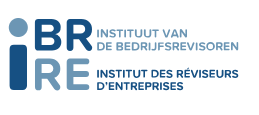1 April 2019 — News
by Erwin Vanderstappen from IRE/IBR

Erwin Vanderstappen, head of legal affairs of the Belgian Institute of Registered Auditors, tells about the innovation of the single audit, which has been improving the oversight of government procurement.
Since 2012, on the great initiative of the former President of the Belgian Court of Auditors, we’ve been implementing ‘single audits’ of public entities in the Flemish region of Belgium. This solution aims to provide extra support to audit bodies, who help to ensure that the government’s standards and rules are upheld.
The aim is to: reduce the burden on the audited organisation; avoid overlapping controls; increase audit scope; and enhance audit quality. All of this, without undermining the independence of audit bodies. This is achieved through building on each other’s work through the audited entity’s permanent file.
The audit bodies are:
They perform a global risk assessment of the audited organisation and agree on an audit planning. Following the waiver of confidentiality requirements for private audit bodies, the role of the registered auditor has been extended. It now includes a statement about the implementation of the budget compared to the financial statements and a declaration on the European System of Accounts (ESA) reporting.
The auditor now also produces a management letter. This is valuable because it is the beginning of a performance audit. It provides the various audit bodies with a single, clear and unbiased view of an entity, which indicates, for instance, the shortcomings of internal controls. This letter also triggers efficiency gains related to improved communication between the audit bodies: it tightens up and improves controls; and it helps to uphold government standards by clarifying and reaffirming rules.
For example, we’ve already seen gains in helping public bodies better apply procurement procedures. There are many complex rules and standards that public bodies and publicly held companies have to follow before signing procurement contracts for goods or services. Before the single audit, some entities were able to cut corners or only superficially comply with government requirements. The single audit has helped to make sure that government standards are upheld at all stages, and down the line. It is expected that this will lead to major efficiency gains, which in turn will make for improved public services and even positively impact how government spends tax payer money.
Since the single audit was developed, implementation has been managed by a mixed public-private steering committee, of which I happen to be a member. This deliberate approach and the ongoing discussions of the steering committee have helped the single audit to be successful in achieving its goals.
Having been a part of the single audit process from the beginning, I can see that the regulations have been smoothly implemented to help government bodies become more efficient and effective. Now, the single audit is being assessed for use in the Brussels region and at the federal level. There is huge potential in the future for further efficiency gains in the public sector thanks to the single audit.
 |
 Connect with the author on |